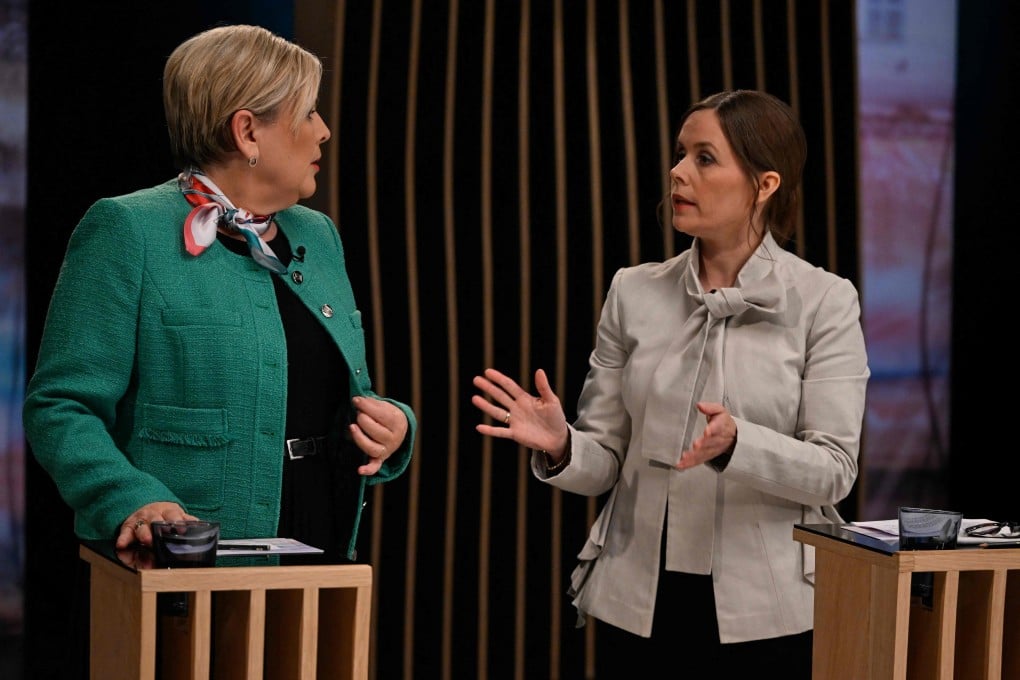Global equality champion Iceland set to elect woman as president for second time
- Katrin Jakobsdottir, who stepped down as prime minister to run for president, is neck-and-neck in polls with equality advocate Halla Tomasdottir
- Iceland has the smallest measured gender gap in the world and a strong history of female empowerment

Polling stations across the north Atlantic island are opening on Saturday to choose a successor to Gudni Th Johannesson, who is stepping down after two terms. The candidate who wins the most votes will become head of state in the single round election, and serve for four years.
Two women are neck-and-neck in polls. Katrin Jakobsdottir, who stepped down as prime minister to run for president, faces competition from Halla Tomasdottir, an equality advocate with private equity background. Halla Hrund Logadottir, director general of the National Energy Authority, has in recent polls fallen to third place.

The ballots opened at 9am local time and close at 10pm, with first results expected soon after polling stations close and a conclusive outcome in the hours that follow.
Iceland has the smallest measured gender gap in the world and a strong history of female empowerment, with women famously going on strike every few years to protest against the remaining inequalities in their society. The country made history in 1980, when Vigdis Finnbogadottir became the first woman to be elected president in the world. She went on to serve four terms.
After her, for the past 28 years, Iceland has been led by male heads of state. While the president’s constitutional powers are limited, the role is significant as a unifying force in the nation of about 376,000 people – roughly half the population of Alaska. The president is also seen as a guardian of the language that is at risk of deteriorating with the prevalence of English, and holds veto power over legislation, with the ability to force a referendum over controversial matters.
The president can also play a role during a government formation process and can refuse to dissolve the parliament. The veto power has only been used by one president, Olafur Ragnar Grimsson, who during his 20 years in power “made this presidential power a living reality”, political scientist Olafur Th Hardarson said in an interview.
